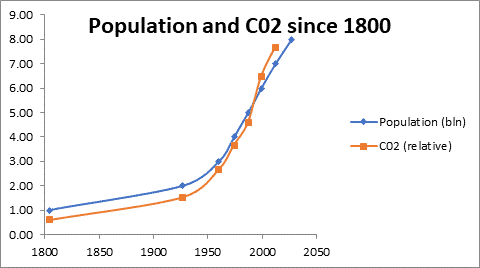Recently Fair Start added an addendum to this letter. Read it here.
Open Letter to Prime Minister Shri Narendra Modi Regarding India’s Human Rights Obligations in Developing New Family and Population Policies sent January 29th, 2023
Dear Prime Minister,
Given calls for population policy reforms, recent attempts to reform family planning systems, the call for family reforms made by the Supreme Court, as well as the import of its rulings on access to family planning, this is an issue that should not be ignored.
This is the key thing to know: India should consider itself bound by international human rights and obligations to future generations when devising a new policy, which it needs desperately. The best human-rights based guidelines for that policy are described in filings now before the United Nations, and which treat Article 16 of the International Bill of Human Rights as the most basic norm – or grundnorm – around which all family and population policy must orient.
India must follow these guidelines in deference to the rights of the future majority, and the most effective way to protect those rights is by obligating wealth at the top of the economic pyramid as a means of funding parental readiness and delay, distributions of resources to ensure birth equity and equal opportunity among children, and a default of smaller families. Nothing has a greater impact on ensuring sustainable development and a better future.
We, the undersigned are writing to urge you to bring your legislation in line with international human rights obligations to future generations, an opportunity signaled by Dr. Natalia Kanem of the United Nations Population Fund’s (UNFPA) via her bold statement on World Population Day that equality is not about counting people but making sure people count. India can use international law, the binding sources rather than the flawed Cairo Consensus, to guide its family policy reforms to ensure every child a fair start in life.
Fair Start as the First and Overriding Human Right
All forms of political obligation begin with a list of norms, or human rights, that attempt to objectively limit the subjectivity of democracy. The order of these lists – from the International Bill of Human Rights to India’s constitution, show why the Cairo Consensus, which was driven by elites who did not want to invest in children but rather exploit population growth for profit, ensured an unsustainable population explosion, massive inequality, and the climate crisis, is a failure.
The first norm that must begin any set of human rights is the right to have children, accounting for the people themselves, and that norm – despite what Cairo intended – cannot be subjective to the parents but must be based on the fair and objective needs of children, as outlined in the Children’s Rights Convention. To give parents unlimited power over their future children is a form of property in persons. Many charities, funded by wealthy persons more interested in protecting their wealth than doing good, push distracting campaigns that do little good in the face of things like massive inequity and a climate crisis set to kill millions.
They are hiding something called the “constitutive fallacy,” basing one’s obligation to follow the law on top-down instruments like written constitutions rather than bottom-up family reforms that actually empower and liberate people – in terms of their actual relations – and in a measurable way, enabling them to physically constitute – under the Children’s Convention – legitimate power relations between people from whose authority things like written constitutions must derive.
Truly free people will limit and decentralize the power others have over them, including via reallocating property rights, by actually constituting systems in which they are empowered.
This means changes in the actual practice of India’s family and population changes can happen bottom-up, through class struggle that seeks to invest more in planning for the future of families at the bottom of India’s economic demographic.
An example of the fallacy involves what’s been called the #famscam, in which several civil society organizations were outed by a whistleblower in 2023 for violating ethics rules and knowingly undoing claimed progress with outdated family policies that disempowered most people in order to – per one Nobel Laureate – grow economies that benefitted a few at cost to freedom and democracy.
That scam skewed the baseline for climate reparations in favor of wealth donors and in a way that could harm billons of people, and has set the stage for litigation around fraud, and the need to fund climate restoration via a variety of tactics, including birth equity family planning reparations which enable true ecosocial empowerment through constituting just communities around parental readiness, redistribution of wealth for birth equity, and a default of smaller families.
The beginning of human rights and justice is family planning consistent with the Children’s Convention, and its vision of a future of free, equal, and democratically participatory people who received what they needed – through birth and development conditions – to comprise such societies.
We urge you to continue your bold actions, and to take a clear public position recommending just and sustainable family planning to address rising global inequality – including gender inequity and the climate crisis. Governments, NGOs, and major foundations are failing women, children and future generations. Without a universal effort to implement equitable and sustainable family planning programs, Sustainable Development Goals (SDGs), FP2030 commitment, and Human Development Index benchmarks cannot be achieved, and human rights will continue to erode.
And they will do so in a world where the climate crisis continues to unfold more quickly than expected, leaving the dead in its wake.
Just and sustainable family planning centers on human rights and accounts for the needs of women, children and future generations – something that current family planning programs across the globe fail to do. Family planning that is just and sustainable:
● Ensures equitable access to family planning and education
● Ensures equitable entitlements at birth and moves towards using fiscal and other policies to ensure that all children are born and raised in conditions that comply with the Children’s Rights Convention
● Ensures every child is born with a fair start with sufficient resource
● Reflects the disparity of ecological impacts between wealthy nations and less wealthy ones, and allocates responsibility proportionally, including calling for the waiving of property claims where appropriate to account for the costs externalized – relative to the Children’s Convention – in the creation of concentrations of wealth
These resources empower individuals and families and enable communities and governments to sustainably and equitably invest more in each child and their future while upholding reproductive rights.
However, current political, religious, economic, and cultural pressures to increase births and obstruct family planning programs are driving our biggest global crises and putting the health, safety, and welfare of current and future generations in peril. The growing human population, with 8 billion alive today, is already too much for earth to sustainably and ecologically support.
Unsustainable population growth, a documented threat multiplier, contributes to catastrophic climate change, unprecedented flooding, pandemics, ecosystem destruction, groundwater depletion, mass extinctions, and environmental degradation. Worsening inequality, in large part driven by our growing population, is also a grave threat to democracy and political stability across the globe.

The Right to Found a Family
Current family planning programs and policies demonstrate clearly the UN’s misinterpretation of the right to found a family under Article 16 of the Universal Declaration of Human Rights. Article 16 should have been exercised in a way that protects all generations – from the middle of the 20th Century to those in 2050 – equally. The United Nations also should have interpreted Article 16 as being consistent with other human rights obligations, such as the Children’s Rights Convention, FP2030, as well as the SDGs.
Because they see the conditions being created today, 40 percent of young people have expressed concerns about exercising their right to plan a family. A robust application of Article 16 could allay those concerns. Instead, the United Nations succumbed to member state pressures to promote and coerce large, unsustainable families and increase population growth rates in the 20th century.
Children’s Rights and Intergenerational Justice
The misreading of Article 16 enabled pro-growth economic and pronatalist pressures to directly undermine the UN’s clear commitment to the rights of children, sustainable development, and intergenerational justice. As things stand, young and future generations face the prospect of significant reversals in human rights.
Mountains of evidence show that because of population-driven environmental threats, children born today and tomorrow will live “an unprecedented life”, facing “conditions older generations have never experienced.” The most recent report from UNICEF indicates that almost half the world’s 2.2 billion children face an “extremely high risk” from the impacts of the climate crisis and pollution. The inequities created by unsustainable growth policies also gravely impact the estimated 356 million children living in extreme poverty worldwide.
Just and Sustainable Family Planning
The global community has failed to promote or support family reproductive decisions that lead to healthy and sustainable ecosystems and equitable prosperity. Quite the opposite, in fact.
The best way to compensate current and future generations for this failure would be to reinterpret Article 16 as stated above and create an equitable balance of resources. Equitable distribution would ensure that children are born into just conditions including entitlements and a global vision that puts them first – with a fair start to a path forward.
The climate crisis is already causing lifelong harm to infants and children, harm that must be stopped and compensated for. Given the efficacy of family planning and climate migration reforms, one option would be family planning incentives/entitlements/reparations to allow parents to best provide their future children with the ecosocial rearing and development conditions required by the Children’s Rights Convention. These payments can be funded by eliminating expensive and counterproductive pronatal incentives, as well as the cost-savers of LARC programming and making abortion more accessible, in the low-fertility countries in favor of climate migration reforms. Any incentivizing effect the payments might have towards large families can be offset by the universal modeling of a “smaller, equitable and more sustainable” family ethic.

Governments and community institutions must make sustainable, equitable investments in current and future families. They must be required to educate would-be parents about the benefits of delayed parenthood, birth spacing, and smaller families – including those with no children. These investments would create greater family financial stability, better social and emotional outcomes, higher standards of living, women’s empowerment, greater investment in each child, and would result in a more sustainable planet.
A declaration by the The Prime Minister would be a powerful step toward dispelling the myths that underpin pronatalism and challenging the reluctance to address unsustainable population growth. Such a statement would elevate discussions around the needs and wellbeing of existing and future generations.
Such a declaration also would highlight the urgency of substantial investment in comprehensive and equitable family planning programs. These programs not only realize individual rights but also advance the legitimate goal of creating equitable and sustainable birth conditions.
The United Nations has been criticized for not intervening to protect human rights in other contexts. This negligence has already resulted in calamitous consequences for the planet and the human species. It is therefore imperative that the Prime Minister call on governments, NGOs, and major foundations to promote equitable and sustainable family planning to ensure intergenerational justice and achieve true liberation for all people, starting with women and children.
The Team at FairStartMovement.org

